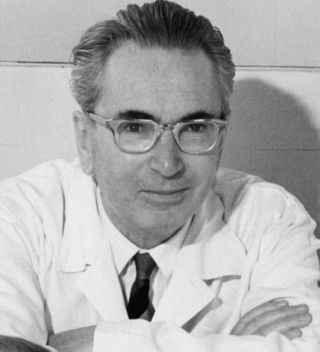Freudian Psychology
Is There a Fascist Impulse in All of Us?
Insights from a Viktor Frankl biographer
Posted February 23, 2017

For observers of the current political climate in Western civilization, democracy appears to be in peril. From Putinism in Russia to the rise of right-wing mainstream parties throughout Central and Western Europe, and even to the good ole USA with the novelty of Trumpism, the fascist impulse seems pervasive. The comparison with interwar populist, nationalistic and xenophobic political parties is apt and many commentators have drawn a direct line between this phenomenon of demagogic populism and the pervasive fascist movements in the 1930s. This ubiquitous phenomenon has left me pondering: Is there a fascist impulse in all of us? And what happened to the consensus that Fascism died an ignoble death with Hitler’s suicide and Mussolini’s hanging?
After the catastrophe of the Second World War many intellectuals embraced Hannah Arendt’s conception of a civilization caesura - specifically the eclipse of three thousand years of western civilization. Undoubtedly the radical evil in the Nazi genocidal project defied comprehension by traditional norms of language and morality. However this realization that originated in the unconceivable social trauma of total war, also led to the advent of a condition of collective amnesia. That is, faced with novel forms of human evil and original types of crimes that ran the gambit from genocide to collaboration, or inexplicable profound apathy and disregard for the plight of victims, all Europeans were willing to forget. Collective amnesia was oddly comforting. The multi-faceted horrors were interned in the conceptualization of “the social crisis of the inter-war period” and a legacy of the Great War. That fascism somehow “died” in 1945 was always a bit of a canard and ironically the life of Viktor Frankl provides one window into this phenomenon.
After 1945 European politics slowly settled into an ossified political block marked by an uneasy truce between Social Democrats and Christian Conservatives. In Chapter 9 of my book titled Viktor Frankl’s Search for Meaning published by Berghahn Books I described the Austrian case where this social peace came at the expense of an honest recognition of the ambiguous past. Since the Fall of Communism in 1989 and the corresponding collapse of the Soviet Union in 1992, a resurgent populist nationalism has filled the political and social vacuum that was created by the end of leftist political visions anchored in evolutionary social democracy, and ultimately a Marxist historical vision of human redemption due to arrive after the inevitable collapse of capitalism. As communism collapsed so did the social compact, and if Milosevic was the first and most atrocious demagogic popular nationalist in the 1990s, perhaps the most representative of the return of the repressed past was the Austria populist Jorg Haider. When Haider’s Freedom party came into the government in 2000 they rode in on a platform of anti-establishment, anti-immigrants, in combination with a sanitized version of Austria’s role during the Nazi period where there were “good Nazis” and the concentration camps were “punishment camps.” Haider and the Freedom Party successfully snapped the social consensus of the post war period. Most Europeans and European historians in particular were stunned by the rise of Haider and the Freedom party. In the same year at a NYC dinner party honoring the Princeton historian Anson Rabinbach, I recall his quip in response to these changes that “in medicine and politics only pathology is interesting.” Viewed from 2017 perhaps the “pathology” ironically was the political consensus of the cold war.
I vividly recall when I first realized that fascism has a genuine populist base. As a beginning graduate student at NYU in 1987 I had located an old school barber shop that cut hair for $5. The shop was located between City Hall and West Broadway, and was popular for young Wall Streeters working in the so-called white collar sweat shops. The barbers were universally Italians out of Brooklyn and for about a year “George” regularly cut my hair. I always left with a high and tight military cut which fit my job as a fitness trainer for executives, but left me on the outside with NYU’s bohemian history graduate students. When I asked George how he learned to cut hair he described how as a very young man he had been brought to Nazi Germany on a work train. Since he could cut hair he was assigned as a barber for the SS. He described how he shaved them with a straight razor while a machine gun was trained on him. I immediately realized the origins of the high and tight haircut! As we talked about the past I queried him about growing up in fascist Italy, but he always demurred. I could tell he wasn’t comfortable speaking on the subject surrounded by his Italian friends. I pestered him though and finally one day he leaned in and whispered in my ear “Mussolini?, Mussolini was a great man--it was just that pact with Hitler that ruined everything.” Stunned by the realization of unrepentant fascist was cutting my hair, I have never overcome how uneasy it made me feel.
When my truncated biography of Frankl was published in Vienna in 2005 titled Das Ende Eines Mythos? I was interviewed by Profil magazine (Austria’s version of Time) for an issue celebrating the centennial of Frankl’s birth. In a sidebar interview box I was pictured with the headline that stated, "Pytell says Frankl was “fasciniertz” with fascism." I had actually told the interviewer that Frankl was “interested” in fascism, but the “mistranslation” was headline-grabbing and perhaps tapped the subconscious feeling of many Austrians. I still maintain that Frankl was “interested” in fascism and ironically for therapeutic potential.
In my highly revised English version of Frankl’s biography, I describe in copious detail Frankl’s journey from Freud to Adler and finally to the development of Logotherapy. Frankl is widely known for his Holocaust testimony Man’s Search for Meaning and the addendum contains a short synopsis of Logotherapy in a Nutshell. However most readers will likely be surprised to learn that Frankl first presented his key therapeutic ideas while he was associated with the Nazi-sanctioned Goering Institute’s branch in Austria. (As a Jew, Frankl could participate in the Austrian branch but couldn’t join). He did however publish his first major theoretical paper in the Zentrallblatt fuer Psychotherapie which was the journal of the Goering Institute that had the proclaimed agenda of building psychotherapy that affirmed a Nazi-oriented worldview. How exactly Frankl was able to publish in such a journal given it was tied to a profoundly anti-Semitic ideology (and thus anti-Freudian) is a bit baffling and unclear. Nevertheless Frankl and his followers affirmed the article as the first theoretical statement of Logotherapy.
I analyze the article in detail in my book, but a few things stand out. To Frankl’s credit he takes a stand against what he describes as the octroi of worldviews on the patient in therapeutic situations. In his words “it is up to the patient to find the right worldview for themselves.” In the book I argue that with this strategy Frankl was making a tactical accommodation of Nazi psychotherapy. That is, he doesn’t appear deluded about the danger Nazism posed, but apparently he also saw some potential in the movement. Certainly the therapeutic technique he proposes where a coward is turned into a hero by taking the correct attitude to fate has a fascistic ring about it.
It is also very clear that Frankl embraced the Goering Institute’s turn to take worldviews seriously in therapeutic situations in contrast to Freudian strategies of exploring the unconscious and Adlerian focus on issues of styles of life, identity deprivation and community feeling. I also argue the turn to worldviews was intellectually consistent for Frankl. He had a youthful interest in philosophy and worldviews, and since he was influenced by both Freud and Adler before being disenchanted by their reductionism, the existentialist and a spiritualistic “third path” that the Goering Institute was promoting was a perfect fit for Frankl. I also argue Frankl’s somewhat benign fascist take on therapy was a combination of Freud’s stoic individualism and Adler’s community feeling that morphed into a focus on will and responsibility to confront neurosis. Not surprisingly will and responsibility were also the key tenets of the Nazi-oriented psychotherapists.
I am slowly succumbing to the disturbing conclusion there is a fascist lurking in all of us. It seems to me the politics of fascism are endemic to democracy and in times of social crisis (prevalent in capitalism!) emerge in the political arena as “Neither Left nor Right” according to the historian Zeev Sternhell’s diagnosis of Italian fascism. But as I argued in my analysis of Frankl, “Neither Left nor Right” also strikes me as a third path. Demagogic populist leaders can mobilize the masses with visions of grandeur and fantasies of violence while the rest tolerate, or turn a blind eye, or perhaps see some possibility offered by the third path. Others out of either ignorance or a willful ignorance remain unaware of the dangers of fascism.
In Chapter 7 of my biography of Frankl I describe the relationship between Frankl and Heidegger and their shared embrace of an existentialist third path. If Frankl was interested in the therapeutic and professional opportunities offered by the rise of Nazism, Heidegger was clearly an engaged, and some would argue unrepentant Nazi – even after the war. Given the horrors of the war and genocide, I was put off by Heidegger’s apologetics. In a similar vein I was disturbed by Frankl’s association with him after the war. Frankl also was fond of quoting a passage that Heidegger wrote in his guest book “Das Vergangene geht. Das Gewesene Kommt.” Frankl translated this as: What has passed has gone: What is past, will come. Given the context of the recent horrifying events and their shared ambiguous relationship to Nazism: Were they disturbingly correct? Has fascism come again?
In the conclusion of my book I address the populist groundswell of support for a proposal by Frankl for a “Statue of Responsibility” on the West coast to complement our Statue of Liberty. No doubt most supporters are unaware that Frankl first conceptualized responsibleness as a constituent feature of human existence while under the influence of the fascist wave of the 1930s, or that he derived the concept from Heideggerian existentialism. As I ask in my conclusion: Is Frankl correct that we should update the values of life, liberty and pursuit of happiness to life, liberty and the pursuit of responsibility? What exactly does that imply?
In the end, Fascist impulses appear not to be something of the past and explained by the social crisis of the inter war period – but endemic to western democracies that originated with the advent of participatory politics after 1789. Modernity as it is conceived has unleashed untold human energies that are deeply liberating for the individual; however, in times of social crisis, third path movements of nationalism and socialism or will and responsibility mobilize democratic political cultures in authoritarian/fascist direction.




